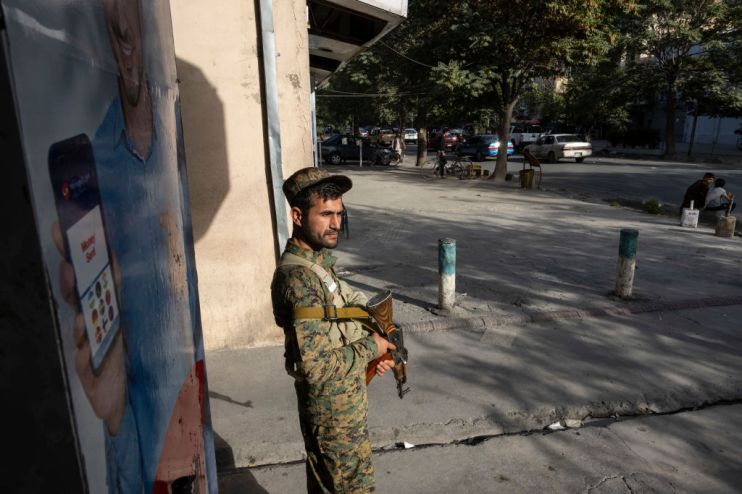Afghanistan: Former central bank boss warns Taliban have ‘less than a week’ of financial coverage

Following its takeover by the Taliban, Afghanistan and its capital Kabul have been left in chaos – with thousands attempting to flee the country while its economic climate becomes increasingly dire.
An eyewatering amount of capital has been snatched from the hands of the Taliban as countries like the US, Germany and other foreign fiscal players drew back international aid after the government’s collapse.
Former central bank governor, Ajmal Ahmady, explained via a Financial Times webinar today that Germany had announced a cut of $300m, likewise the World Bank have pulled access to $1bn and the US Treasury has blocked off $9bn in international reserves.
With the country, and the Taliban, cut off from donor flows – Ahmady said Afghanistan’s coverage ratio has been slashed from around 15 months to less than a week’s worth.
It means the some $9bn the country had formerly had access to, gave Afghanistan around 15 months of covering its expenses and meeting all its financial obligations.
Now with access to just “tens of millions”, Ahmady explained, the country will soon run out of money, leaving it no other choice but to make government staff redundant and slash the salaries of those that remain.
“The economic situation is going to be quickly deteriorating,” he said, adding that “the number of unemployed is going to increase.”
“This is already beginning to affect the average Afghan,” the former central bank boss continued, particularly with the rising prices of food in the country.
Ahmady, who disagreed with the US’ decision to withdraw troops, told Bloomberg earlier this week that the Taliban are “going to have to find additional revenue sources, wherever that may be. They will probably go up to other countries to, of course, the US and maybe China, Pakistan and other regional countries to find some sources of finance.”
Former CIA director, David Petraeus agreed, saying: “They’re in for a very difficult time ahead” unless the Taliban find an additional source of revenue, adding that “the big issue here is this enormous fiscal gulf”.
“The lights could literally go out in Kabul and around the country if they don’t resolve that.
“I think they recognise how precarious their situation is”.
However, Afghanistan having “extraordinary mineral wealth” – which Petraeus noted China most likely has its eye on – must also be “in the back of the Taliban’s mind also”.
“That will be yet another factor in all of this.”
‘No fuel, no pilot’
When the situation in Afghanisation became more turbulent, with Taliban fighters entering the Kabul and prisoners were being released, Ahmady left his office and headed to the capital’s airport as he “thought it might be the safest place to go”.
It was there, among other senior officials, Ahmady saw on the news that president Ashraf Ghani had already left the country.
“At one point they announced that the plane had no fuel and no pilot so it seemed like the plane wouldn’t leave,” he said, describing that a helicopter was taking off of one side and a military plane the other.
The former central bank governor then “pushed” his way on board another plane, one he was not supposed to be on, in his bid to flee the country safely.